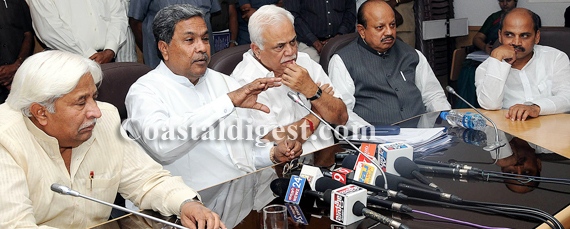Bangalore, Dec 21: The State Government on Friday rolled back implementation of the Karnataka Professional Educational Institutions Act, 2006, from the forthcoming academic year (2014-15).
As a result, the entrance exams and admission system to professional courses will remain the same for the 2014-15 academic year.
After a meeting with his Cabinet colleagues, Chief Minister Siddaramaiah announced: “We will not implement the Act from 2014-15 as there are many misconceptions about it. This government is committed to students' interest. We will ensure wider consultations on the Act before considering implementing it. We will explore possibilities of amending the Act.”
The Act calls for a single entrance test by the COMEDK for all the private colleges including minority institutions, while the KEA would have conducted the test only for government and aided colleges.
Fixing the fees too, would have been left to the private colleges with the government playing only a regulatory role, through the Fee Regulatory Committee and the Admission Overseeing Committee, both of which are headed by retired High Court judges.
Meanwhile, Karnataka Examinations Authority (KEA) will now begin preparations for CET. As per its announcement, the CET would be conducted from May 1, 2014 to May 3, 2014.
Meanwhile, the Karnataka Unaided Private Engineering Colleges Association (KUPECA) has expressed its dissent to the government's decision not to implenet the Act.
KUPECA secretary MK Panduranga Setty said, “We have already lost enough money. There cannot be a uniform fee structure for all colleges. We will not sign the consensual agreement if the government does not meet our demands.”
KUPECA wanted the government to ensure that the private institutions did not suffer losses.
“They should either allow us to fix the fees according to our expenditure or they should subsidise the fees to the students,” Setty said.
College managements have been asked to submit their accounts and audit report to the Fee Regulatory Committee by December 31. In spite of the roll back, the managements would submit their reports to the panel, Setty said.
The status of the two committees, the admission overseeing committee and the fee regulation committee, remains unclear in the wake of this decision by the government.
However, the minority institutions have welcomed the government's decision as they would be allowed to conduct their own entrance test as they have been doing for many years.








Comments
Add new comment